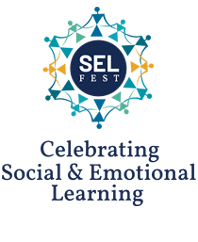|
|
| |
 |
| |
| Our Educational Initiatives |
|
|
| |
| |
|
|
|
 |
|
| Our Educational Beliefs |
|
| |
1. EACH CHILD HAS A UNIQUE POTENTIAL |
|
Every child is born with a unique natural potential. Experiences provided at the home, school and beyond further build on this potential and enhance its development.
We believe in nurturing each child’s natural potential and create a learning environment where it is further unleashed and maximized. Our teaching methods are designed to suit the unique pace and capabilities of each child within the classroom. |
| |
| |
2. EVERY CHILD LEARNS DIFFERENTLY |
|
There is no one best method to teach children. In fact, children learn through a variety of different methods appealing to their multiple intelligences, senses and learning styles.
We use diverse teaching methods such as projects, activities, discussions, lectures, drama, arts, field visits and expert interactions over and above textbooks. These help children to learn in a variety of ways, which are more natural and practical methods of learning for them. |
| |
| |
3. LEARNING THROUGH EXPERIENCES |
|
We know through reading or listening, but we understand only through practically experiencing concepts.
Children retain more when they can see, hear, smell, touch and experience situations rather than just absorbing facts from textbooks or blackboards.
We create rich learning experiences, which are carefully planned to reach specific educational goals. Each child is an active explorer fully engaging his/her hands, heart and mind into each learning experience. Teachers play a vital role in guiding children to gather information, engage in and learn from each experience. |
| |
| |
4. GOOD TEACHERS = GOOD EDUCATION |
|
The quality of a school’s education is mainly determined by the quality of its teachers. A teacher who provides information, encouragement and values each child unconditionally is most successful in developing the child’s natural curiosity, self-esteem and motivation to excel.
We believe in empowering our teachers, training them extensively and encourage them to learn and develop more with each passing day. We treat the teacher’s approach in the classroom as our topmost priority at Redbricks. Their nurturing attitude and relentless efforts contribute towards creating a vibrant school culture at Redbricks. |
| |
| |
5. LEARNING HAPPENS THROUGH INTERACTIONS |
|
In our lives, we learn important ideas, concepts, practices, values, etc., through our interactions with people
of different ages and from different walks of life. In olden times, children mainly learnt from their family
members, and from their Guru as an apprentice.
At Redbricks, we provide immense opportunities for children to learn from their peers, parent volunteers, visiting experts, and the community at large, over and above their own teachers. This also ensures that the curriculum is grounded within the context of our own culture and society.
|
| |
| |
6. PREPARATION FOR LIFE |
|
What is the real purpose of education? Is it merely to gain basic knowledge and admissions at a reputed college in a high potential field? Or is it for the development of a complete individual- across intellectual, physical, social, emotional, creative and spiritual areas?
We hold a broad outlook focusing on the holistic development of all children. Children of Redbricks hold deep understandings and can apply what they have learnt in multiple ways. They not only gain essential facts but also develop fundamental values such as discipline and hard work, life skills and overall personality while learning at Redbricks.
|
| |
| |
7. SYSTEMS THINKING |
|
Traditional education divides knowledge into different subjects; however, in the world everything is interconnected. Each topic can be looked at from multiple perspectives and disciplines.
We believe in instilling a systems thinking pattern in our students. It helps them to look at the world realistically and understand the various relationships existing between different concepts and subjects. It requires the use of both left brain and right brain, and it is more holistic. In today’s age, it is systems thinking that is required to succeed and develop innovations towards global contribution. |
| |
| |
8. LIFELONG LEARNING |
|
One of the main aims of education is to transform the child's inherent soul into that of a life long learner.
Since learning is ever expanding, so should be the learner.
We create an environment that encourages a deep curiosity to learn and develops skills of learning in each child. It is this practice of life long learning which can help children to cope with and excel in any challenging situation. Hence, even after the child finishes school, the child continues to seek knowledge, adapting to changing times and constantly evolving through further experiences and interactions. |
| |
| |
|
